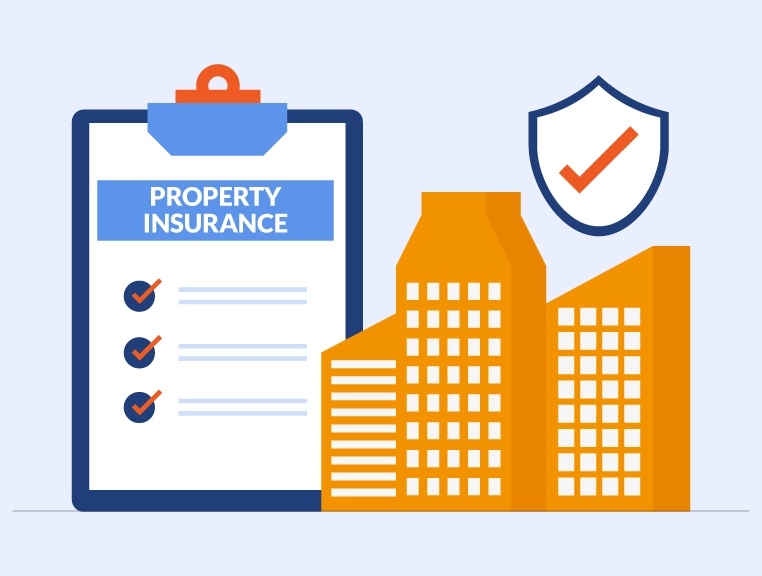Overview
The Local Authorities Clause in property insurance ensures that if a property is damaged and must be repaired or rebuilt, any additional costs required to comply with local municipal or government regulations will be covered by the insurer, provided the clause is included in the policy.
This clause is especially important when:
- New building codes or zoning laws have been introduced after the original structure was built.
- Authorities require changes in design, height, materials, or usage during reconstruction.
Without this clause, any extra expenses mandated by local authorities during rebuilding would have to be borne by the insured.
The local authorities clause in the property insurance policy covers the loss of business income which applies when the government entity denies access to the covered property. Many catastrophic scenarios led to such actions by the government to protect individuals and businesses from any damage. These catastrophes may include floods, hurricanes, or wildfires amongst other possible reasons.
Read More: How are assets valued under a property insurance policy?
When a local government authority gives direction for evacuating the area, various businesses may experience losses as their business remain closed for several days. The local authorities clause in the property insurance includes provisions in the policy for the business owners. The policy provides for the loss of income while the business remains closed due to property damage.
However, it does not include any provisions for covering losses because of the inability of the business owner to reopen. Thus, this clause in the property insurance is for situations in which business interruption takes place. This clause states that the insurer will pay for the business income losses in case the local authority prevents the insured from accessing the premises or the property.
The amount recoverable under the local authorities clause in the property insurance does not include the following:
- The cost incurred in complying with any regulations or bylaws
- Any damage or destruction that has happened prior to the granting of the extension
- Any destruction or damage not insured by the property insurance policy
- The additional cost required to make the property as good as it was when new
- Any rate, tax, duty, development, or other charge or assessment arising out of capital appreciation. These charges may be payable with respect to the compliance required as per regulations or by-laws.
The insured has to get his work of reinstatement done within a period of twelve months after the destruction or damage to the premises or property. The work of reinstatement may be carried out partially or wholly at another site if the law says so. Also, the total amount recoverable in the property insurance does not exceed the sum insured.
Read More: What is the claim process for Property and Casualty Insurance?
The local authorities clause does not apply to liability for claims arising due to:
- Breach of professional duty by the Insured or any employee of the Insured.
- In connection with land charges
- Publication or utterance in violation of any individual’s right to privacy
- The development of any landfill site
- Any tip by the Insured following sale or transfer of such property
- In case of discharge or dispersal of contaminants or pollutants into or upon the land
Case Study:
A small town in Uttar Pradesh saw heavy rain in 2005 in the month of July. The torrential rain continued for several days. As a result, the river in the vicinity of the town reached high levels of danger. The meteorological department forecasted heavy rains for another couple of days. A flood-like situation raised causing a high alert in the area. Due to the likelihood of a flood, the government in that town ordered the evacuation of that area to prevent any damage to the residents.
Due to the heavy flood, the residents in that area were prevented from returning for another week, and they were given refuge in a camp. All the local businesses remained closed for several weeks.
A business owner, who operated in the business of automobile parts had to shut down his business due to flood conditions. But he had availed a property insurance policy. This policy included the local authorities clause which promised to cover the damages caused. Thus, he was able to receive part of his lost income because of his property insurance policy.
FAQs
Q) What is a local authorities clause in property insurance?
A) The Local Authorities Clause covers additional costs incurred to meet government regulations when rebuilding or repairing a damaged property.
Q) Why is the local authorities clause important?
A) It ensures that the insured is not financially burdened by extra construction costs due to updated local laws or building codes after a loss.
Q) Is the local authorities clause included by default in property insurance?
A) No, it is typically an add-on or extension and must be explicitly included in the property insurance policy.
Q) What types of expenses are covered under the local authorities clause?
A) Costs such as structural modifications, upgraded materials, or compliance with new fire safety norms mandated by local laws are covered.
Q) Who needs the local authorities clause in property insurance?
A) Property owners with older buildings or those in areas with evolving construction laws should consider adding this clause for financial protection.
About The Author
Shivani
MBA Insurance and Risk
She has a passion for property insurance and a wealth of experience in the field, Shivani has been a valuable contributor to SecureNow for the past six years. As a seasoned writer, they specialize in crafting insightful articles and engaging blogs that educate and inform readers about the intricacies of property insurance. She brings a unique blend of expertise and practical knowledge to their writing, drawing from her extensive background in the insurance industry. Having worked in various capacities within the sector, she deeply understands the challenges and opportunities facing property owners and insurers alike.




